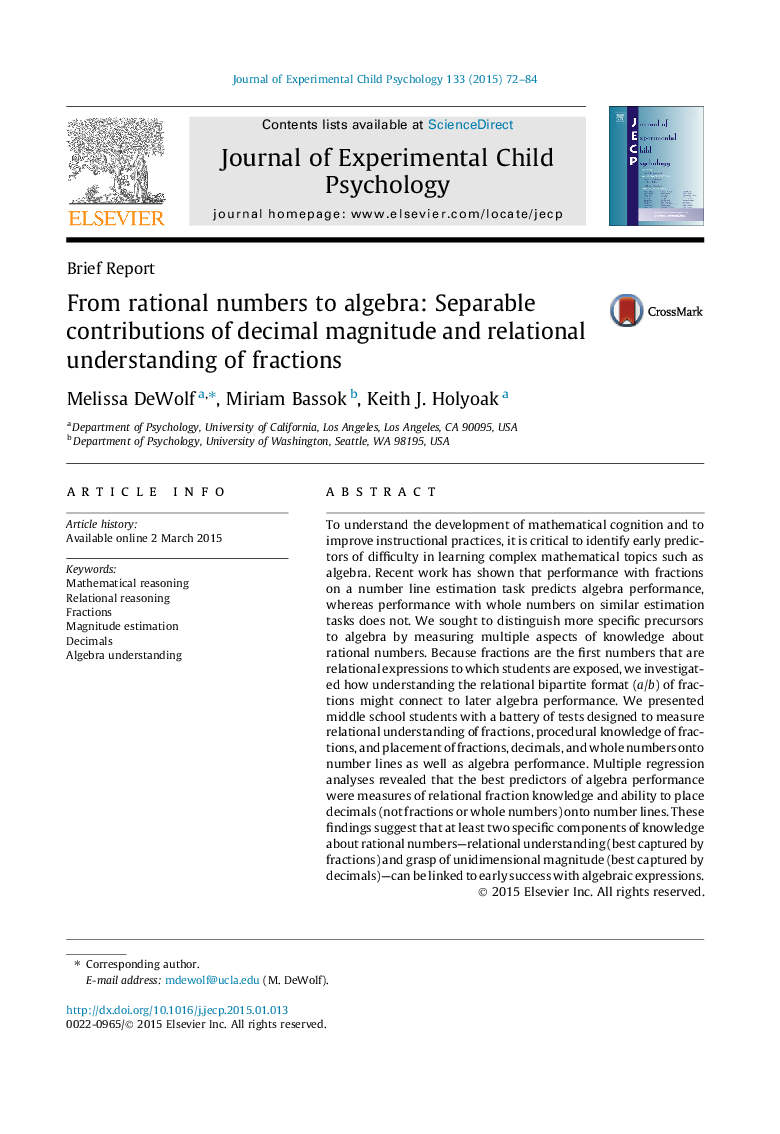| Article ID | Journal | Published Year | Pages | File Type |
|---|---|---|---|---|
| 917996 | Journal of Experimental Child Psychology | 2015 | 13 Pages |
•Fraction knowledge has been linked with later math performance especially in areas such as algebra.•We tested what specific aspects of fraction knowledge are linked to algebra performance in middle school students.•We find that only fraction relational understanding and decimal magnitude estimation account for a unique amount of variance in algebra performance.•These findings suggest that at least two specific components of knowledge about rational numbers—relational understanding (fractions) and grasp of unidimensional magnitude (decimals)—can be linked to early success with algebraic expressions.
To understand the development of mathematical cognition and to improve instructional practices, it is critical to identify early predictors of difficulty in learning complex mathematical topics such as algebra. Recent work has shown that performance with fractions on a number line estimation task predicts algebra performance, whereas performance with whole numbers on similar estimation tasks does not. We sought to distinguish more specific precursors to algebra by measuring multiple aspects of knowledge about rational numbers. Because fractions are the first numbers that are relational expressions to which students are exposed, we investigated how understanding the relational bipartite format (a/b) of fractions might connect to later algebra performance. We presented middle school students with a battery of tests designed to measure relational understanding of fractions, procedural knowledge of fractions, and placement of fractions, decimals, and whole numbers onto number lines as well as algebra performance. Multiple regression analyses revealed that the best predictors of algebra performance were measures of relational fraction knowledge and ability to place decimals (not fractions or whole numbers) onto number lines. These findings suggest that at least two specific components of knowledge about rational numbers—relational understanding (best captured by fractions) and grasp of unidimensional magnitude (best captured by decimals)—can be linked to early success with algebraic expressions.
